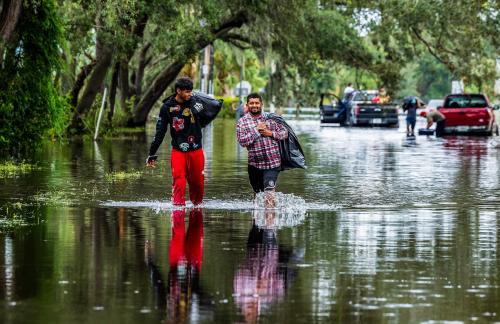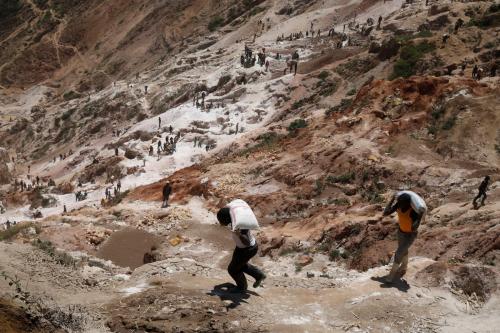Introduction
Since the industrial revolution the geopolitics of energy – who supplies it, and securing reliable access to those supplies – have been a driving factor in global prosperity and security. Over the coming decades, energy politics will determine the survival of the planet.
The political nature of energy, linked to the sources of supply and demand, comes to public attention at moments of crisis, particularly when unstable oil markets drive up prices and politicians hear constituent protests. But energy politics have become yet more complex. Transport systems, particularly in the United States, have become largely reliant on oil, so disruption of oil markets can bring a great power to a standstill. Access to energy is critical to sustaining growth in China and India – not only to lift these countries out of poverty, but to keep pace with burgeoning populations. Failure to deliver on the hope of greater prosperity could unravel even authoritarian regimes, and even more so democratic ones, as populations become more educated and demanding. And it is these very factors that have turned the market power of energy suppliers into political power. Importers have come to compete for supplies, driving up prices, supplier wealth and the capacity to play roles in regional and international politics that go well beyond the GDP of countries such as Russia, Venezuela and Iran.
These traditional geopolitical considerations have become even more complex with global climate change. The United Nations’ Intergovernmental Panel on Climate Change has irrefutably documented that the use of fossil fuels is the principal cause of greenhouse gases that are driving up the temperature of the planet. Climate change will create severe flooding and droughts which will devastate many countries’ food production, lead to the spread of various illnesses, and cause hundreds of thousands of deaths per year, particularly for those living in the developing world. Nearly two billion people were affected by climate related disasters in the 1990s and that rate may double in the next decade. At the very same time that countries are competing for energy, they must radically change how they use and conserve energy. The politics of that debate, particularly how to pay for the costs and dissemination of new technologies, and how to compensate those who contribute little to climate change but will most severely experience its tragedies, are emerging as a new focal point in the geopolitics.
Ironically, high oil and gas prices and the actions that must be taken to address climate change – namely, pricing carbon at a cost that will drive investment, new technology and conservation to control its emission – will drive another existential threat: the risk of nuclear proliferation. Higher energy and carbon prices will make nuclear power a more attractive option in national energy strategies, and the more reliant that countries become on nuclear power, the more they will want to control the fuel cycle. The risk of breakout from civilian power to weaponization would increase dramatically, as well as the risk of materials and technology getting into the hands of terrorists.
Confronting these challenges requires an understanding of the fragility of international oil and gas markets, but also of the nexus among energy security, climate change, and nuclear energy and proliferation. This paper seeks to address these interconnections, and the kinds of measures that will be needed to ensure sustainability, prosperity, and security.
The Brookings Institution is committed to quality, independence, and impact.
We are supported by a diverse array of funders. In line with our values and policies, each Brookings publication represents the sole views of its author(s).

